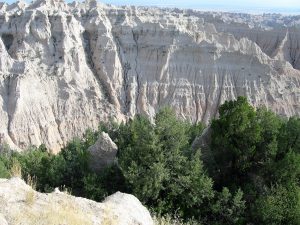 In the heavens God has pitched a tent for the sun. It is like a bridegroom coming out of his chamber, like a champion rejoicing to run his course. It rises at one end of the heavens and makes its circuit to the other; nothing is deprived of its warmth (Psalm 19:4c-6 NIV).
In the heavens God has pitched a tent for the sun. It is like a bridegroom coming out of his chamber, like a champion rejoicing to run his course. It rises at one end of the heavens and makes its circuit to the other; nothing is deprived of its warmth (Psalm 19:4c-6 NIV).
In this stanza, David teaches from a more particular example about the heavens. He says, “Consider how the sun is God’s servant to proclaim his glory!” With the poetic language of appearance (how things look to us in a figurative sense—this is not a science lesson), he compares the heavens to a tent that God has pitched for the sun. What a picture! The vast heavens are like a little tent for the little sun (which is really very large) to use. If you want to see a dynamic presentation of this, on YouTube watch “How Great Is Our God?” by Louie Giglio (https://www.youtube.com/watch?v=azFFc20_Ub4&t=601s). If this is so, then how great must be the God who pitched the tent for the sun!
The sun is compared to two people: a bridegroom and a champion runner. Everyday day the sun appears with the virile strength of a newly-married man. He is strong and happy. How much more so the Lord of creation! I used to run cross-country in high school. Yes, I find that surprising also. The most I would run a day was five miles and rather slowly. But I liked to watch truly skilled runners seemingly glide through the course. A high school race is far short of a twenty-six-mile marathon. The sun is also like a marathon runner. Look how effortlessly he runs his racecourse everyday. He enjoys the run, though his circuit is from one end of the heavens to the other. How much more vigorous and joyful is the Creator! And think, this bridegroom/runner has been doing this for thousands and thousands of years without rest for one moment. What then is God who made the sun?
David concludes this description of the sun with a telling phrase: “nothing is hidden from its heat.” Yes, all people everywhere understand the might of the sun. Ninety-three million miles away, and it still sufficiently warms our planet to sustain life! If this is so, then how much more powerful is the One who is Lord of all, who could make such a powerful servant? The calm consideration of this ought to drive all people everywhere to their knees before their Creator.
The sun may be like these things to us, but it is in fact just a very small part of the infinite God’s handiwork. What is so incredibly large to us is extremely small to him. It is his servant to proclaim the extent (“one end of the heavens … to the other”) and penetration (“nothing is hidden”) of his ruling power. Now if you cannot escape from the sun, how dare try to you hide yourself from the Holy One?
The sun with royal splendor goes forth to chant thy praise,
and moon beams soft and tender their gentler anthems raise;
o’er every tribe and nation the music strange is poured,
the song of all creation, to thee, creation’s Lord.
(Trinity Hymnal, #113)
Grace and peace, David

 The heavens declare the glory of God; the skies proclaim the work of his hands (Psalm 19:1 NIV).
The heavens declare the glory of God; the skies proclaim the work of his hands (Psalm 19:1 NIV). Genesis 1:1-31
Genesis 1:1-31